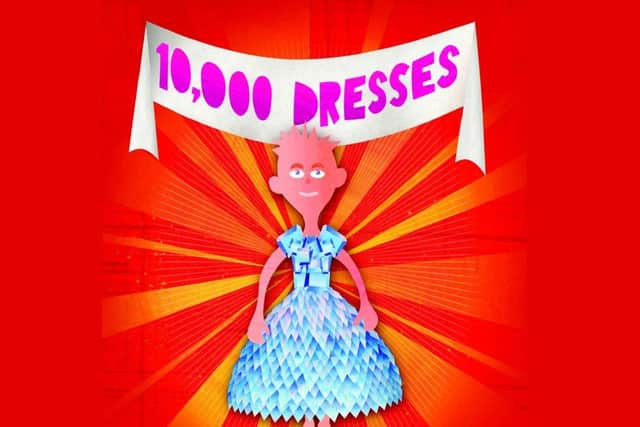DUP minister responsible for libraries calls meeting to discuss wave of transgender-themed books aimed at toddlers
and live on Freeview channel 276
It comes after the News Letter published a list of such titles which are in stock in public libraries across Northern Ireland, as well as books aimed at teenagers about being a drag queen and offering advice on blowjob techniques.
Jim Allister raised the issue in the Assembly on Monday, accusing Libraries NI of “corrupting young people” and appealing to the new minister in charge – Mr Lyons – “to investigate it and take a stand on it” (leading Sinn Fein’s Colm Gildernew to complain to the speaker about Mr Allister’s comments – a complaint which is awaiting consideration).


Advertisement
Hide AdAdvertisement
Hide AdIn response, Mr Lyons has now said: “Whilst the stocking of library books remains an operational matter, I find this revelation to be concerning.
“Libraries should be a place where parents do not need to worry about whether books their young children may pick up are age appropriate.
“I will be writing to the Chief Executive and Chairperson of the Library Board to request a meeting to discuss these issues.”
The chief executive is Jim O’Hagan, and chairwoman of its board is Bonnie Anley.
Advertisement
Hide AdAdvertisement
Hide AdMs Anley has been a board member of multiple quangos, including the BBC Broadcasting Council.
Her vice-chair is Julie Gilmour, a Newtownabbey Alliance councillor, and other politicians on the board are DUP Bangor councillor Alistair Cathcart, another Newtownabbey Alliance councillor Andrew McAuley, and Alliance councillor for Holywood Martin McRandal.
Asked about the practice, it stood by the decision, saying such events aim to foster “positivity, diversity, and inclusion”.
Advertisement
Hide AdAdvertisement
Hide AdAlliance leader Naomi Long joined in too, saying people criticising drag queen storytime sessions had “little to do”.
In 2021, the News Letter reported that Michelle McIlveen, then the DUP education minister at Stormont, had launched a campaign to provide free period products to “pupils who menstruate”.
The term is used in place of “women” or “girls”, by people who also believe that males can have periods.
-
WHAT DO THE STATS SAY?
Last November, the British Medical Journal published a study which found that the number of people saying they were transgender had ballooned between 2000 and 2018, yet remained tiny.
Advertisement
Hide AdAdvertisement
Hide AdHowever, that data is five years old now, and was based only on an examination of anonymous records from 20 GP surgeries.
In many – perhaps most – cases, people who describe themselves as transgender will not seek any medical intervention; often men declare themselves women (or vice-versa) without obtaining sex-change treatment or seeking a legal change of status.
As such, they do not show up in such studies.
Also not included in the figures are those saying they are “non-binary” – a new category meaning that someone feels neither fully male nor female.
The BMJ study found roughly one person in every 70,000 was listed as transgender in 2000, but this had risen to around one-in-every-13,000 people by 2018.
Advertisement
Hide AdAdvertisement
Hide AdTeenagers were far more likely to say they are transgender it said: by 2018 one-in-600 16-to-17-year-olds were recorded as transgender.
If that one-in-13,000 figure were accurate, that would be about 5,150 people over the entire UK.
But just to show how unreliable the statistics are on this issue, in 2018 the UK government’s Equalities Office (under the control of minister Penny Mordaunt, who favoured gender self-identitifcation) claimed that up to 500,000 in the UK may be transgender (or 0.7% of the whole population).
In recent years, media reports have claimed that pupils identifying as trans or “non-binary” account for several percent of the entire student body in some schools in England.